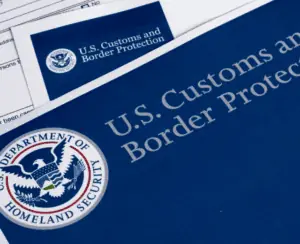The Tragedy of Fraud
By Harriet Behar, Sweet Springs Farm, Gays Mills, Wisconsin. Harriet is an Organic Farmers Association Governing Council and Policy Committee member.
“Organic Integrity from Farm to Table- Consumers Trust the Organic Label” – Slogan used by the USDA’s National Organic Program
The organic market has enjoyed decades of growth, reaching $55 billion annually in U.S. sales in 2019. It is one of few labels that has a strong meaning and a system of federal oversight to provide a consistent definition from farmers markets to grocery store aisles across the country. However, trust in the label has been shaken by recent high-profile, mass-volume fraudulent sales with malicious intent—a tragedy for the both the farmers and consumers who have relied on the organic label for their livelihood and as an important choice of food and fiber for themselves and their families. Organic sales are booming, but unfortunately it seems, so is fraud.
It is no surprise that those willing to make a fast buck would seek to relabel conventional crops as organic, which fetch a higher price premium. Numerous cases of organic fraud have come to light in recent years, mostly centered on organic commodity crops like corn and soybeans, although produce and other sectors are not immune to phony organic products. Both domestic and imported grains have been found fraudulent. The scale and elaborate nature of the fraud over the past decade spans hundreds of truckloads, numerous large ocean-going vessels, and hundreds of millions of dollars.
The vast majority of organic farmers are not fraudulent and view their organic certification as an achievement. There are many organic certificates framed on the wall next to the family pictures of children, graduations and weddings. Organic farming typically relies on more management, planning, and labor than growing the same crops conventionally. Maintaining documentation on activities, inputs, and rotations is necessary under the law. Sharing this information with certifiers and inspectors adds an extra burden, somewhat compensated by the higher organic price received in the marketplace. Both anger and sadness are felt by the organic community when nonorganic products are scammed as organic. Real organic producers have experienced large economic losses due to their legitimate crops being replaced by questionable grain at cheaper prices. Many share the sentiment of Dave Campbell, longtime organic farmer from Illinois; “I have been positive about the organic marketplace for the many decades I have been growing organic corn and soybeans, but the recent fraudulent organic sales by both domestic and foreign operators has lowered my optimism.”
Farmers and businesses had provided numerous tips to certifiers and to the National Organic Program (NOP) illustrating both domestic and import fraud activities. Did the tips lead the NOP to require enhanced oversight and subsequent enforcement actions against these operations? Why has it been so difficult for the National Organic Program and the USDA to find and stop this fraud? To many organic farmers, it does not appear the USDA has made protection of the organic label a top priority.
Fraud in the American Heartland
The scale of one recent (2019) case of domestic fraud is astonishing. According to the Department of Justice in the Northern District of Iowa, a well-respected man in his community, Randy Constant, admitted to $142,433,475 of “organic” grain sales, the vast majority of which were fraudulent. During the years of 2010 to 2017, he sold over 11,500,000 bushels of
grain (this volume is estimated to fill 3,600 rail cars or 14,375 semi-trailers), with more than 90% of it falsely marketed as organic.

How did this happen? David Glasgow, Associate Deputy Administrator of the National Organic Program, stated “people who commit this kind of fraud are of
ten well-known and trusted in their community. It is hard for good people to believe bad things about someone they know, which can allow the criminal activity to go unseen for years.”
Glasgow preferred not to share the various methods Constant used to gather and market his phony organic grains as he does not want to provide “a roadmap for future offenders.” Members of the organic community did submit complaints to the NOP about Constant over the years. There was at least one complaint against Constant submitted to the NOP from a competitor who was concerned by the volume of sales moving through Constant’s Ossian, Iowa-based brokerage, Jericho Solutions. His lower-than-standard prices gained him buyers, drove down prices, and stole sales from his legitimate organic competitors. Another complaint stated organic soybeans sold by Constant in 2007 were grown from genetically modified seed (prohibited in organic). Glasgow would not comment on these complaints stating that the USDA, like all government agencies, will not discuss actions on specific complaints until they have been settled. However, Glasgow did confirm the “NOP has worked with other enforcement agencies with international reach to develop tools that help us identify higher risk activities in the marketplace and rapidly increase surveillance, build the case, and take action.”
As a result of increasing pressure from the organic community, Congress, and these cases of fraud, Glasgow explained the USDA has strengthened “the partnership between the NOP and other law enforcement agencies including the USDA’s Office of the Inspector General,
Food Safety Inspection Service, and the Animal and Plant Inspection Service; as well as the Justice Department, Federal Trade Commission, and Customs and Border Protection.” These agencies have deeper resources for investigation and the ability to charge an individual with criminal activity, an authority the NOP does not have. The NOP fines for mislabeling a product as organic are not as strong as criminal penalties that can be brought by these other agencies. The NOP explained that, “fining someone who is facing prison time and multimillion-dollar asset forfeiture is a much steeper penalty than NOP’s authority to issue a civil penalty.” Furthermore, the NOP does not have the authority to “stop sale” of fraudulent products.
The U.S. justice system requires strong evidence to bring a case to criminal court. In the Constant case, even though there was covert surveillance of the illegal activities, until the government was able to get testimony of witnesses who were involved in the movement and false labeling of the organic grain, and they had a concrete false communication for a wire fraud charge, there was not a strong enough criminal case to bring Randy Constant to justice for his substantial crimes.
Sentencing
Three additional farmers from Overton, Nebraska were also found guilty in the Constant crime. They admitted in court that they produced nonorganic grain and knew that Constant planned to fraudulently sell it as organic. These farmers received over 10 million dollars from Constant for their collaboration. It seems these farmers rationalized the dishonest dealings by believing they were not the person actually selling the crops as organic, yet the court proved otherwise. During the sentencing, their attorney asked for leniency because no one was hurt. United States District Court Judge C.J. Williams felt differently, calling their activity “massive fraud, perpetrated on consumers over a long period of time” that “caused incalculable damage.”
The Nebraska farmers received sentences, from 3 to 24 months in prison, and Constant was sentenced to 10 years. All were given stiff fines totaling over $120 million. Three days after sentencing Constant committed suicide in his garage, bringing his case to a tragic end.
Organic Fraud from Abroad

This recent domestic fraud case comes on the heels of years of suspected international organic import fraud from ocean freighters carrying grain labeled as organic from high-risk foreign markets. Countries such as Ukraine, Kazakhstan, Moldova and the Russian Federation were identified by the European Union in early 2018 as high-risk areas for organic fraud and the E.U. limited imports from these countries. These shady businesses then focused on the lucrative U.S. organic market with less scrutiny at the border. In March 2018, a shipment of “organic” grain from these countries was found to be fraudulent and 25,000 metric tons of corn was refused entry into the U.S. However, this refusal was because it was whole seed and not cracked corn (only cracked corn is allowed from these countries,) rather than its organic status.
Even though the NOP issued a memo in July 2018 to organic certifiers to be wary of these high-risk countries for grain fraud, little was done at the border to ensure their grain was actually organic. “Although organic farmers were complaining to the USDA about suspected organic grain fraud from imports since 2015, it took a high-profile story in the Washington Post and a lot of pressure on Congress to get them to act, “said John Bobbe, former Executive Director of the Organic Farmers Agency for Relationship Marketing (OFARM). “Organic farmers need more protections from the National Organic Program.” The Strengthening Organic Enforcement Rule is one result of the action from Congress asking for more focus on this issue from the NOP.
Where do we go from here?

The NOP has recognized that certifiers are on the front lines of protecting organic integrity. They are sharing their improved analytical tools that identify risky behavior with the certifiers and asking certifiers to implement more consistent complaint documentation and follow-through. The NOP has the authority to take away a certifier’s accreditation, yet even with some questionable certifier actions this tool has been used sparingly. Instead, certifiers are told to improve when they are doing poorly in the oversight of the organic label, but have been allowed to continue in the organic certification business.
Additionally, the NOP has improved their complaint review process and are now encouraging more complaints from producers and consumers to identify fraud using a form found at https://organic-compliance.ams.usda.gov/.
Strengthening Organic Enforcement: Improvements to the Organic Regulation
The USDA published a proposed rule, Strengthening Organic Enforcement, in the Federal Register (Docket #AMS-NOP-17-0065) on August 4, 2020 to deal with many necessary changes to more effectively protect and enforce organic integrity.
To deal with fraud, this rule proposes the U.S. implement an import certificate requirement, requiring the certifying agent to approve the specific import sale of an operator shipping a product into the U.S. This would provide tighter oversight on the volumes being imported, by providing certifiers the info they need to track sales in real time, rather than just once a year at the inspection. The European Union has used this system for numerous years, which has proved to improve traceability and fraud detection.
The rule also requires organic inspectors and certification personnel to demonstrate the necessary knowledge and skill needed to perform their jobs through quantifiable requirements and ongoing continuing education. In addition, specific auditing activities will be required on every inspection to ensure the volumes of outgoing organic products match sufficient incoming organic products.
The rule will also require certifiers to share compliance-related information with other certifiers. Certifiers will also be required to perform a percentage of unannounced inspections each year on operations considered “high risk.” High-risk spot inspections should shed light on suspicious activities and lessen the avenues for hiding illegal dealings.
The rule also proposes that all organic operations will have a uniform organic certificate generated through the NOP database to reduce inconsistencies, making it easier to understand if the operation has recently been certified, or is about to be reinspected for continued certification. Certifiers will be required to keep this publicly searchable database current, whereas they currently are only required to update it on an annual basis.
The NOP proposed rule appears to have included the suggestions both required by Congress and brought forward by many in the organic community. However, more needs to be done to boost the investigative and punitive capabilities of the NOP. The system within the NOP to scrutinize complaints and bring cheaters to justice must become more robust, with the capability to stop the sale and commerce of fraudulent products. The deterrent to criminal behavior relies not only in tight oversight from certifiers and inspectors, but also requires the quick hand of enforcement by government. The great majority of U.S. organic farmers are doing an excellent job and uphold the integrity we all depend on for a successful organic market. It is very frustrating to see the integrity of the label damaged by bad actors and a lack of enforcement. While the NOP is implementing some improvements, they continue to be under-resourced and try to implement 20th century tools for oversight of the 21st century organic supply chain. We must all continue to work to demand more protections of organic products from fraud. The National Organic Program must do better to live up to their slogan, “Organic Integrity from Farm to Table- Consumers Trust the Organic Label.”

This article was written for New Farm Magazine, the magazine of the Organic Farmers Association. All OFA Members receive a complimentary issue of New Farm annually. Join Today!
Join today and support organic farmers!
Organic Farmers Association members support a strong voice for organic farmers in Washington, D.C.
The Organic Farmers Association is the ONLY national organization where solely independent certified organic farms determine its policies and work agenda. OFA was founded on the belief that the voice of farmers like you should carry the most weight in agricultural policy decisions.
In recent years, OFA has made a difference by putting significant pressure on the USDA to finalize the Origin of Livestock Rule to help organic dairies and finalize the Strengthening Organic Enforcement Rule to stop organic fraud and increase enforcement. We testified and advocated to allow paper pots for small-scale vegetable growers, introduced the ODAIRY Act of 2023, and advocated for stronger animal welfare standards for organic livestock and poultry production (OLPS Rule).
We have proved that farmer voices are stronger when we work together. Join us in this movement by becoming a member today!
Farm
Membership
U.S. certified organic farmers should select this membership. Only farm members are eligible to vote on Organic Farmers Association policy positions and priorities. International farmers, or farms that are not certified organic, should select the Supporter Membership.
Supporter Membership
Not a certified organic farmer, but want to support the organic farmers that make our planet and food systems a better place? Supporter members will be connected to the discussions about policies that affect organic farmers, and be called to advocate on their behalf.
Organization Membership
Organizations that have a significant membership (or stakeholders) of certified organic farmers should select this membership. Organization Members receive the tools they need to advocate for policies important to organic farmers and extend their network.


